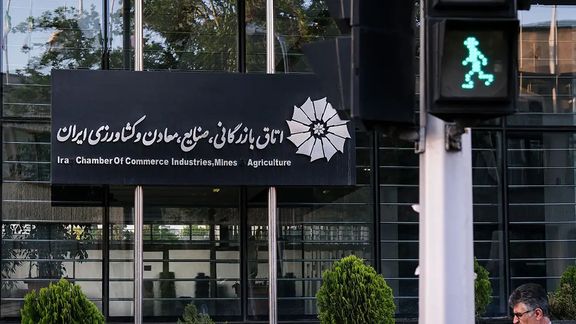Iran sentences former chamber of commerce head for criticizing government

Despite a change in government, Iran's private sector remains under pressure as the judiciary sentenced the former head of the Chamber of Commerce to prison and a fine.

Despite a change in government, Iran's private sector remains under pressure as the judiciary sentenced the former head of the Chamber of Commerce to prison and a fine.
Iran's Chamber of Commerce, Industries, Mines, and Agriculture (ICCIMA) serves as the voice and the representative body for the private sector. However, the government maintains a tight grip on the chamber, often resisting its efforts to operate independently.
After about a year of controversy surrounding Hossein Selahvarzi’s election as head of the chamber, which eventually led to his dismissal late last year, *Mizan News Agency*, linked to Iran's judiciary, reported on Sunday that the Tehran Court of Appeals sentenced him to six months in prison and a fine for "spreading lies." The campaign against Selahvarzi was reportedly orchestrated by figures close to former President Raisi's administration, further intensifying the political nature of his case.
Last year, EcoIran reported that Tehran deputy prosecutor general had issued an order for the indictment and prosecution of Selahvarzi on charges of insulting the founder of the Islamic Republic Ruhollah Khomeini and Supreme Leader Ali Khamenei in the Tehran Revolutionary Court.
He has frequently criticized officials and their policies in his tweets, and it appears that the main reason for this verdict is his tweets criticizing authorities and supporting protesters during the 2022 protests.

Known for his criticism of government’s economic policies, Selahvarzi was elected as the president of the Chamber of Commerce in June 2023. The election immediately sparked reactions from the hardliners and state media. A few days after Selahvarzi’s election, around 30 hardliner lawmakers had urged the government to annul the elections.
IRGC-affiliated Tasnim News Agency published images of his social media posts from the 2022 nationwide protests for "Woman, Life, Freedom," labeling the Chamber of Commerce president as a "dissident. Mehr News Agency also released documents claiming that Selahvarzi had been disqualified by the Ministry of Intelligence before the Chamber of Commerce board election.
On several occasions, the state media announced that Selahvarzi had resigned but he denied the reports himself on social media. Finally in November, Selahvarzi was dismissed by the Minister of Economy.
Over the years, Selahvarzi has held various economic positions, though he is politically aligned with the so-called Reformists. While the election of reform-minded President Masoud Pezeshkian raised hopes for a shift in economic policy, the entrenched influence of the previous administration's hardline economic stance seems to have limited the potential for significant change.
The chairman of the chamber, often referred to as the “private sector’s parliament” with over 400 members, has the role of coordinating between the private sector and government and is sometimes required to participate in meetings with government officials.
Members of the chamber have often criticized regime policies that have led to an economic crisis, including a confrontational foreign policy. The chambers often produce economic reports that the government finds embarrassing, or they criticize proposed budget bills and other plans.
“Chairmanship of the chamber of commerce is not a government position in the Islamic Republic. The chamber is a non-governmental and non-state body and represents the private sector,” Abdolreza Davari, one of former President Mahmoud Ahmadinejad's advisors and confidants, said last year, calling “politically-motivated interference” in chamber of commerce elections by the state “a dangerous phenomenon”. “The affairs of the chamber of commerce should be decided and regulated by the members of the chamber itself,” he added.